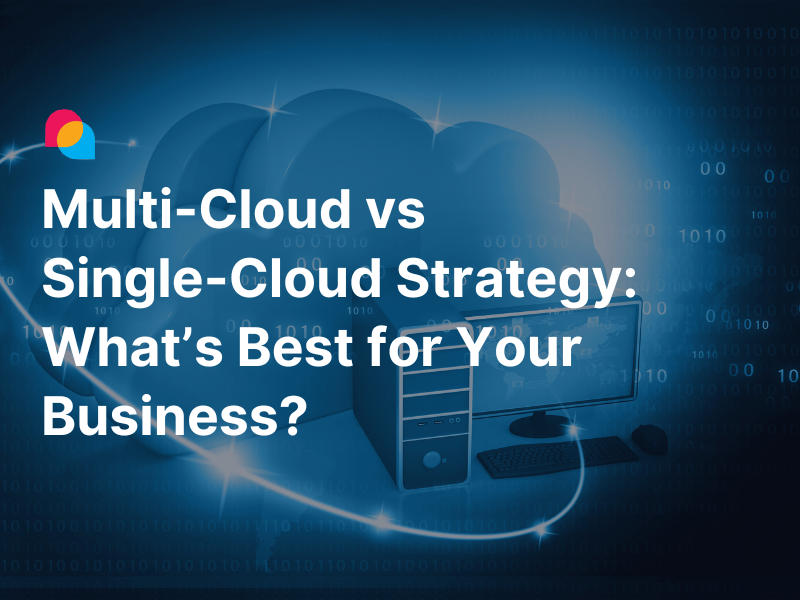The Growing Pressure on DevOps in Scaling Tech Teams
There comes a point in every growing tech company when the infrastructure begins to creak. The app still runs, sure; but under the surface, the system has grown into a delicate web of services, CI pipelines, monitoring tools, and patchwork scripts that only a few people truly understand.
This is where DevOps earns its reputation. Once seen as a buzzword, DevOps today is a discipline that touches everything; from how you ship to how you sleep at night. And for teams scaling fast, the decision to keep it in-house or bring in outside help can shape the next 6–18 months of product velocity and team morale.
That said, let’s get something straight from the start: this article won’t try to hand you a magic answer. It won’t tell you whether outsourcing DevOps is categorically right or wrong; because frankly, that would be irresponsible. Instead, we’ll unpack the real trade-offs involved so you can make a decision with eyes wide open.
What Does “Outsourcing DevOps” Really Mean?
Before we get too far, it’s worth asking: when we say “outsourcing DevOps,” what are we actually talking about?
Some people hear the term and immediately picture handing over the keys to a third-party vendor who now controls their cloud, pipelines, and infrastructure. Others think of a contractor embedded in their Slack channel for a few sprints, fixing up Jenkins or Terraform scripts. Both are correct; in part.
Think of DevOps outsourcing as a spectrum:
|
Mode |
What it Looks Like |
|
Staff Augmentation |
You bring in a freelance DevOps engineer or consultant to work alongside your team; often project-based. |
|
DevOps-as-a-Service |
You hire a managed service provider to build and run your pipelines, monitoring, deployments, and often infrastructure. |
|
Advisory or Coaching |
External experts guide your internal team to improve tooling, practices, and observability without owning day-to-day ops. |
The tasks involved vary widely:
- CI/CD design and management
- Infrastructure as Code (IaC) with tools like Terraform or Pulumi
- Monitoring and incident alerting setup
- Cloud cost tuning
- SRE and availability engineering
Still, here’s a key truth often lost in the conversation: outsourcing DevOps does not mean outsourcing responsibility.
Even if a third party manages your deployment pipeline, you still own the outcome. If production breaks at 2 AM, it’s your customers; not your vendor; who see the error screen. And if you don’t understand the architecture underneath your app, you’re building on quicksand.
The Case for Outsourcing DevOps: Where It Adds Real Leverage
Let’s turn the lens to the upside. Why would a team choose to outsource DevOps in the first place?
a. Access to Deep Expertise Without Long Hiring Cycles
DevOps done right demands a complex skillset; Kubernetes, observability tooling, cloud architecture, GitOps, IaC, the list goes on. For a growing company, hiring someone with all of that knowledge takes time; and time is rarely something you have in abundance.
By partnering with a specialized provider, you skip the ramp-up. These teams have walked the walk. They’ve seen what a broken pipeline looks like at 3,000 deployments a day, and they know what good looks like in Terraform modules and alerting thresholds.
In one example, a European fintech startup reduced its deployment failures by 68% after partnering with an external DevOps firm to rebuild its CI/CD stack using ArgoCD and Helm. That kind of maturity isn’t something you get from reading a few blog posts.
b. Shorter Time-to-Value for Product Teams
Here’s something product teams rarely admit out loud: infrastructure can become a distraction. The more time engineers spend babysitting builds or untangling flaky deployment scripts, the less time they spend delivering features your customers can see.
When you outsource DevOps, you give your product engineers back their focus. You move faster not because you’ve added headcount, but because you’ve removed blockers. And that matters even more when your business is in growth mode and every sprint counts.
c. More Predictable Costs and Flexible Scaling
Internal DevOps hiring comes with its own risk: you might hire too slowly and bottleneck growth; or you might overhire and end up with idle capacity six months later. Outsourcing lets you scale capacity up or down based on project needs. No long-term salaries, no underutilized staff.
It also reframes the conversation around budget. Instead of CapEx-style headcount costs, you move toward OpEx; paying for services as you consume them. For CFOs looking to keep runway intact while enabling product velocity, that’s a compelling proposition.
The Trade-Offs: What You Risk When You Outsource DevOps
Of course, no strategic move is without compromise. And the decision to outsource something as integral as DevOps deserves serious scrutiny. Let’s examine the core risks.
a. Losing Internal Operational Awareness
When someone else builds and maintains your systems, your internal team gradually loses touch with how things work under the hood. That may not matter today; but in a crisis, it can be the difference between a 20-minute fix and a 2-hour outage.
More than once, I’ve seen teams get caught off guard in postmortems, unable to explain why a particular alert was missed or what a specific Terraform change did. Over time, this loss of intuition can become dangerous.
b. Communication Gaps and Lost Context
DevOps decisions are often subtle; decisions about retry thresholds, alert sensitivity, or deployment ordering that only make sense when you understand the product. When those decisions are made by outsiders without daily context, you risk misalignment.
And when those partners are across time zones or working asynchronously, delays and confusion creep in. Handoffs become brittle. Incident response suffers. Suddenly, you’re spending more time coordinating with your vendor than solving the actual problem.
c. Security and Trust Concerns
There’s no way around this: giving a third party access to your infrastructure requires trust; and sometimes, that trust is hard-earned. In industries with tight compliance requirements (think healthcare, fintech, or defense), this can become a showstopper.
If you're working under SOC 2, HIPAA, or ISO 27001, you’ll need clear protocols for access control, audit trails, and data handling. And you’ll need to ask hard questions: Who holds the keys? Who monitors the monitors?
Context is King: When Outsourcing DevOps Makes Strategic Sense
There’s no universal blueprint for when to outsource DevOps, but there are unmistakable signals when it makes practical, even necessary, sense. The question is never “Should we outsource?” in the abstract. It’s “Given our current maturity and trajectory, does outsourcing unlock momentum; or introduce more friction?”
Let’s look at a few situations where outsourcing isn’t just helpful; it’s often the smartest move you can make.
✔ Startups with No Ops Bandwidth
In early-stage startups, every engineer is a full-stack engineer; until they aren’t. When a team of four is trying to ship a working MVP, the last thing they need is to be buried in AWS IAM roles or writing Terraform for autoscaling groups.
At this stage, speed of execution outweighs ownership. A good DevOps partner helps you bootstrap a sane CI/CD pipeline, deploy reliably, and build in basic monitoring without burning your founding team out. You’re not avoiding the work; you’re sequencing it.
✔ Scale-Ups Battling Growing Pains
As your product matures and traffic grows, the cracks begin to show. Manual deploys don’t scale. Your cloud bill doubles, and nobody’s sure why. On-call becomes a source of dread.
This is where outsourcing brings a second wind. You don’t need permanent staff; you need a burst of seniority. Someone who has seen three cloud cost audits and knows how to triage flaky builds. You need leverage, not another junior engineer with a certification.
✔ Enterprises Navigating Cloud Transitions
Legacy isn’t always a dirty word; but it’s a stubborn one. For large enterprises with sprawling infrastructure, moving to the cloud can feel like changing the engine of a moving airplane.
In these environments, internal teams often lack the headspace to rethink delivery pipelines or rebuild infrastructure from scratch. Partnering with experienced DevOps firms provides transitional muscle. Not to replace the team, but to help them modernize without stalling the ship.
When You Shouldn't Outsource DevOps (Yet)
Just as there are good reasons to outsource, there are equally valid reasons to wait. Some teams turn to outsourcing hoping it’ll “fix” their dysfunction; but DevOps isn’t a bandage.
✘ When Your Architecture Isn’t Mature Enough
If your app’s deployment model changes every sprint, or if you’re still figuring out basic system boundaries, introducing external DevOps leads to waste. They’ll build pipelines for a moving target. The result? Abandoned scripts, misunderstood requirements, and frustration on both sides.
✘ When You Haven’t Built a DevOps Culture Internally
DevOps isn’t tooling; it’s a way of working. If your team doesn’t yet have ownership over deployment, or doesn’t participate in on-call, outsourcing might only delay the hard conversations. Worse, it might reinforce the divide between “devs” and “ops,” which DevOps was designed to erase.
✘ When Incident Response Is Still Ad-Hoc
If your team doesn’t yet have a handle on alerting, root cause analysis, or runbooks, throwing a third party into the mix won’t help; it’ll confuse. You need a baseline of operational maturity before an external team can amplify your strengths. Otherwise, they’ll end up doing work that should have been part of the team’s learning curve.
Questions to Ask Before You Outsource DevOps
Outsourcing well starts with clarity. The best engagements begin not with a contract, but with reflection. Here are a few sharp-edged questions to ask before you pick a partner:
- What does success look like?
Is it faster deploys? Better observability? Reduced downtime? You can’t hit a target you haven’t defined.
- Are we filling a skill gap; or outsourcing a mindset?
If you’re just short a Kubernetes expert, staff augmentation may suffice. But if you're unclear on system ownership or deployment flow, outsourcing won't fix the fundamentals.
- How will we ensure knowledge transfer?
Is the vendor mentoring your internal team; or becoming a bottleneck? A good partner builds capability, not dependence.
- Who owns the outcome?
In shared responsibility models, clearly define roles. Who responds to alerts? Who maintains dashboards? Who decides when it’s “good enough”?
Blended Models: Building DevOps Muscle While Partnering Wisely
For many teams, the best path forward is a hybrid strategy. You don’t need to choose between 100% in-house or fully outsourced. You can do both; intentionally.
🛠 Strategic In-House, Tactical External
Own your deployment culture, release cadence, and incident response processes internally. Outsource the repetitive, low-leverage tasks: provisioning, config management, cloud budget audits.
This lets your core team shape the “why” while external experts handle the “how.”
👨🏫 Use Vendors as Mentors
Structure engagements so your internal engineers shadow external DevOps staff. Better yet, rotate team members through paired sessions. Learning by doing builds confidence and fluency.
You don’t want your team to rely on vendors; you want them to graduate from them.
Conclusion: Reframing the Question Entirely
By now, the real question should be clear: it's not “Should we outsource DevOps?” It's “What part of DevOps should we own?”
DevOps, when understood correctly, is not a role or a department. It's a philosophy; a culture of accountability, automation, and collaboration. That culture can be supported externally, but it must be owned internally.
As Picasso once said, “Learn the rules like a pro, so you can break them like an artist.” In that spirit, learn your systems deeply; even if you start by outsourcing them. Then, over time, build the confidence and clarity to shape them your way.
References:
Why Outsource DevOps in 2025? Key Points Explained, Neklo, 2025





